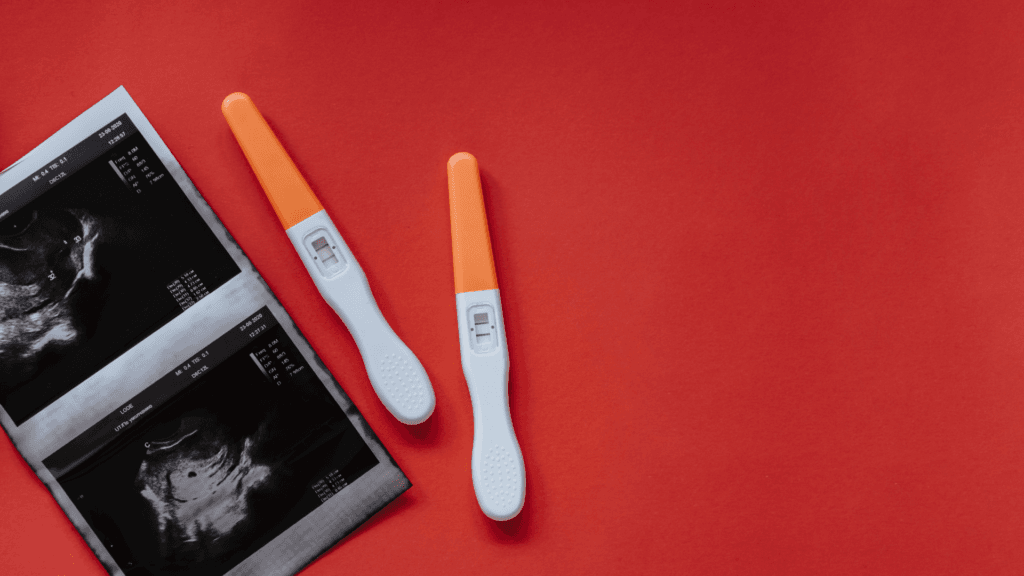How To Get Pregnant This Month
Your Ovulation Cycle | Sexual Timing | Lifestyle and Health Factors | Medical Interventions | Emotional and Mental Wellbeing
Are you feeling the urgency to become pregnant this month? You’re not alone, and the good news is, it’s possible. This blog post is here to guide you through essential steps and tips, driven by science and expert advice, to help you achieve your dream.
By following the strategies outlined here, you’ll increase your chances of conceiving within a month. From understanding your ovulation cycle to making lifestyle adjustments, we cover everything you need to know. Let’s dive in and support you on this important journey.
1. Understanding Your Pregnant Ovulation Cycle
Understanding your ovulation cycle is a key step if you need to get pregnant this month. Ovulation is the process when a mature egg is released from the ovary, making it available for fertilization. Knowing when you ovulate can significantly boost your chances of conceiving.
Tracking Ovulation
Tracking ovulation isn’t as tricky as it might sound. First, you need to understand your menstrual cycle. The average menstrual cycle is between 28 and 35 days, and ovulation usually happens around day 14. But, this can vary from woman to woman.
Here are some methods to track ovulation:
- Menstrual Calendar: Mark the first day of your period and keep track of the length of your cycle.
- Basal Body Temperature (BBT): Measure your temperature every morning before you get out of bed. Look for a slight increase, which indicates ovulation.
- Ovulation Predictor Kits (OPKs): Use these kits to detect the surge in luteinizing hormone (LH) that happens right before ovulation.
Signs of Ovulation
There are also physical signs that help you know when you are ovulating. These signs can include:
- Basal Body Temperature (BBT): As mentioned, a slight increase in your BBT can indicate that ovulation is occurring. You’ll need a special thermometer, and it’s best to track the changes over a few months for accuracy.
- Cervical Mucus: During ovulation, your cervical mucus becomes clear and stretchy, similar to egg whites. This creates a favorable environment for sperm to travel to the egg.
- Ovulation Pain: Some women feel a slight pain or discomfort on one side of their lower abdomen, known as mittelschmerz, during ovulation.

Using Ovulation Predictor Kits
Ovulation predictor kits (OPKs) can be very helpful in pinpointing your most fertile days. These kits usually include test strips or sticks that you urinate on to measure the amount of LH in your urine. A surge in LH means you’re about to ovulate.
According to research studies, OPKs are about 99% accurate in detecting the LH surge, making them a reliable tool for many women trying to conceive. However, using them correctly and at the same time each day can improve accuracy.
Understanding your ovulation cycle can be a game-changer when you’re saying, “I need to get pregnant this month.” By employing these methods and tools, you’ll increase your chances of conceiving and moving one step closer to your goal.
2. Optimizing Sexual Timing
When you’re aiming to conceive as soon as possible, timing is everything—literally. Optimizing the timing of intercourse can significantly increase your chances of getting pregnant. This means understanding when you are most fertile and coordinating intimacy around that time.
Best Time to Have Intercourse
Understanding the best time to have intercourse involves knowing when you ovulate. The days leading up to and including ovulation are your most fertile days.
- Ovulation Period: Typically, ovulation happens around 12 to 16 days before your next period. During this period, an egg is released from the ovary and lives for 12 to 24 hours. Sperm can live inside the female body for up to five days. So, having intercourse a few days before ovulation can help ensure sperm are ready to meet the egg.
- Fertile Window: According to studies, the six-day window leading up to and including ovulation is known as the “fertile window.” Having sex during this time can significantly boost your chances of conception.1
- Timing Intercourse: Aim to have intercourse every other day during this fertile window. This approach ensures that sperm are always available when the egg is released, maximizing your chances of getting pregnant.
Frequency of Intercourse: Insights from Studies
Scientific research has provided some insights into how often you should be having sex if you need to get pregnant this month.
- Not Too Rare, Not Too Often: While it may seem logical to have sex as frequently as possible, daily intercourse can actually lower sperm count. On the other hand, having sex too infrequently might miss your fertile window.
- Every Other Day: Research indicates that having sex every other day during the fertile window is optimal for increasing the chances of conception. This frequency keeps sperm count at a healthy level while ensuring sperm are present during ovulation. Read more about the science of timing.
- Role of Male Health: Male sexual health and timing also matter. Keeping stress levels low, maintaining a healthy diet, and staying fit can help improve sperm quality. Additional lifestyle changes for men can contribute positively to fertility.
By understanding and optimizing sexual timing, you significantly increase your chances of saying “I need to get pregnant this month” and turning that hope into a reality.
3. Lifestyle and Health Factors
Making lifestyle and health adjustments can significantly boost your fertility and help you get pregnant this month. These factors play a crucial role in preparing your body for conception.
Diet and Nutrition
What you eat has a direct impact on your fertility. Certain foods can support and even boost your chances of getting pregnant.
- Whole Grains: Foods like whole grain bread, brown rice, oats, and quinoa are beneficial. They provide your body with necessary nutrients and help maintain stable blood sugar levels.
- Fruits and Vegetables: Incorporating a variety of colorful fruits and vegetables ensures you get essential vitamins and antioxidants. Leafy greens like spinach and kale are particularly good.
- Healthy Fats: Include healthy fats found in avocados, nuts, seeds, and olive oil. These fats help regulate hormones, which is crucial for ovulation.
- Lean Proteins: Protein sources such as chicken, turkey, beans, and legumes support overall health and energy levels.
- Folic Acid: Women trying to conceive should make sure they get enough folic acid. This nutrient is important for a healthy pregnancy. You can find it in fortified cereals, leafy greens, and citrus fruits.
A balanced diet fuels your body and gives you the best chance to conceive.

Exercise and Weight Management
Maintaining a healthy weight through exercise is vital for fertility. Both being underweight and overweight can negatively impact ovulation.
- Regular Exercise: Moderate exercise like walking, swimming, or yoga can help you stay fit. Aim for at least 30 minutes of moderate activity most days of the week.
- Strength Training: Including some strength training can help build muscle and boost metabolism, which is good for overall health.
- Avoid Over-Exercising: Too much intense exercise can actually lower fertility. It’s important to find a balance and not overdo it.
Staying active and maintaining a healthy weight can help normalize your menstrual cycle and improve your chances of getting pregnant.
Avoiding Harmful Substances
Certain substances should be avoided or limited when you’re trying to conceive:
- Alcohol: Drinking alcohol can affect your fertility. Try to minimize or eliminate alcohol consumption.
- Tobacco: Smoking has a negative impact on both male and female fertility. Quitting smoking can improve your chances of conceiving.
- Caffeine: High intake of caffeine has been linked to fertility issues. Aim to limit your coffee or soda intake to one or two cups a day.
- Drugs: Illegal drugs, as well as certain prescription drugs, can impair fertility. Speak with your doctor about any medications you’re taking.
By avoiding these substances, you help create an optimal environment for conception.
These lifestyle and health factors make a significant difference when you’re aiming to get pregnant this month. By eating the right foods, staying active, and avoiding harmful substances, you can boost your fertility and increase your chances of conceiving.
4. Medical Interventions and Assistance
When trying to conceive, sometimes a bit of help from medical professionals can make all the difference. Let’s look at some common medical interventions you might consider when you feel the urgency to get pregnant this month.
Fertility Medications
Fertility medications are often the first step in medical intervention for boosting pregnancy chances. These medications aim to stimulate ovulation, making it easier to conceive. Here’s an overview of the most commonly prescribed medications:
- Clomiphene Citrate (Clomid): This oral medication is typically the first line of treatment to induce ovulation. It works by blocking estrogen receptors in the brain, which increases the release of follicle-stimulating hormone (FSH) and luteinizing hormone (LH), crucial for ovulation.
- Letrozole (Femara): Similar to Clomid, Letrozole is often used for inducing ovulation. It’s an aromatase inhibitor that lowers estrogen levels, prompting the body to release FSH and LH.
- Gonadotropins: These injectable hormones contain FSH and LH, directly stimulating the ovaries to produce multiple eggs. They are usually used when oral medications are ineffective.
- Metformin: Typically prescribed for women with polycystic ovary syndrome (PCOS), Metformin helps regulate insulin levels and can improve ovulation.
- Bromocriptine (Parlodel): This medication is used for women who have high levels of prolactin, a hormone that can interfere with ovulation.

For more information on fertility medications, check out this comprehensive guide from WebMD.
Consulting a Fertility Specialist
When should you consult a fertility specialist? If you’ve been trying to conceive for over a year without success (or six months if you’re over 35), it may be time to seek professional help. A fertility specialist can provide you with a thorough evaluation and customized treatment plan.
During your first consultation, expect the following:
- Medical History Review: The specialist will review your medical history and any previous attempts at conception.
- Physical Examination: This usually involves a general physical exam and sometimes a pelvic ultrasound.
- Hormonal Testing: Blood tests can check for hormone levels that influence ovulation and overall reproductive health.
- Semen Analysis: If applicable, your partner may also undergo testing to evaluate sperm health.
- Discussion of Treatment Options: Based on the results, the specialist will discuss available treatment options, which could include medications, assisted reproductive technologies (ART) like in vitro fertilization (IVF), or minor surgical procedures.
Understanding what to expect can make the process less daunting. By exploring fertility medications and consulting with a specialist, you can take significant strides toward getting pregnant this month. Remember, medical interventions are there to support you, and combining them with the right lifestyle changes can bring you closer to your dream.
5. Emotional and Mental Well-being
Taking care of your emotional and mental well-being is crucial when trying to get pregnant. The journey can be stressful, and managing your mental health can positively impact your fertility.
Managing Stress
Stress can play a big role in your ability to conceive. High levels of stress can affect your hormones and make it harder to get pregnant. Here are some relaxation techniques that can help:
- Deep Breathing: Slow, deep breaths can calm your mind and reduce anxiety. Try doing this for a few minutes each day.
- Meditation: Guided meditation apps can help you focus and reduce stress. Even 10 minutes a day can make a difference.
- Yoga: Yoga combines physical movement with deep breathing and meditation, which can help relax your body and mind.
- Exercise: Regular physical activity releases endorphins, which are natural stress relievers. Aim for moderate exercise like walking or swimming.
Implementing these techniques can make a big difference in managing stress and supporting your goal of getting pregnant this month. For more detailed advice, check out this article on managing stress during pregnancy.
Seeking Support
Emotional support is essential during your journey to get pregnant. It can make you feel less isolated and more hopeful. Joining support groups or seeking counseling can be very beneficial.
Many people find that a combination of both makes the journey easier and less stressful. Explore more about emotional well-being during pregnancy.

By focusing on your emotional and mental well-being, you are not only supporting your own health but also creating a positive environment to increase your chances of getting pregnant this month.
To Wrap Up…
By understanding your ovulation cycle, optimizing sexual timing, embracing healthy lifestyle choices, and exploring medical assistance, you can increase your chances of getting pregnant this month. Time is essential, so act promptly on these steps.
Whether you’re tracking ovulation, adjusting your diet, or consulting a fertility specialist, each action brings you closer to your goal. Stay positive, be proactive, and remember that you have many resources and strategies at your disposal.
Believe in your journey and take the necessary steps to turn your dream into reality. Good luck!
Explore our latest posts:
- Seed Cycling: A Natural Approach to Hormonal Balance
- The Best Traditional Chinese Medicine For Fertility
- 11 Ways I Reduced My Period Pain with Natural Remedies
- 9 Surprising Habits Making Your Period Worse
- Boost Your Fertility with Magnesium: What You Need to Know
- Wilcox, A. J., Dunson, D., & Baird, D. D. (2000). The timing of the “fertile window” in the menstrual cycle: day specific estimates from a prospective study. BMJ (Clinical research ed.), 321(7271), 1259–1262. https://doi.org/10.1136/bmj.321.7271.1259 ↩︎







